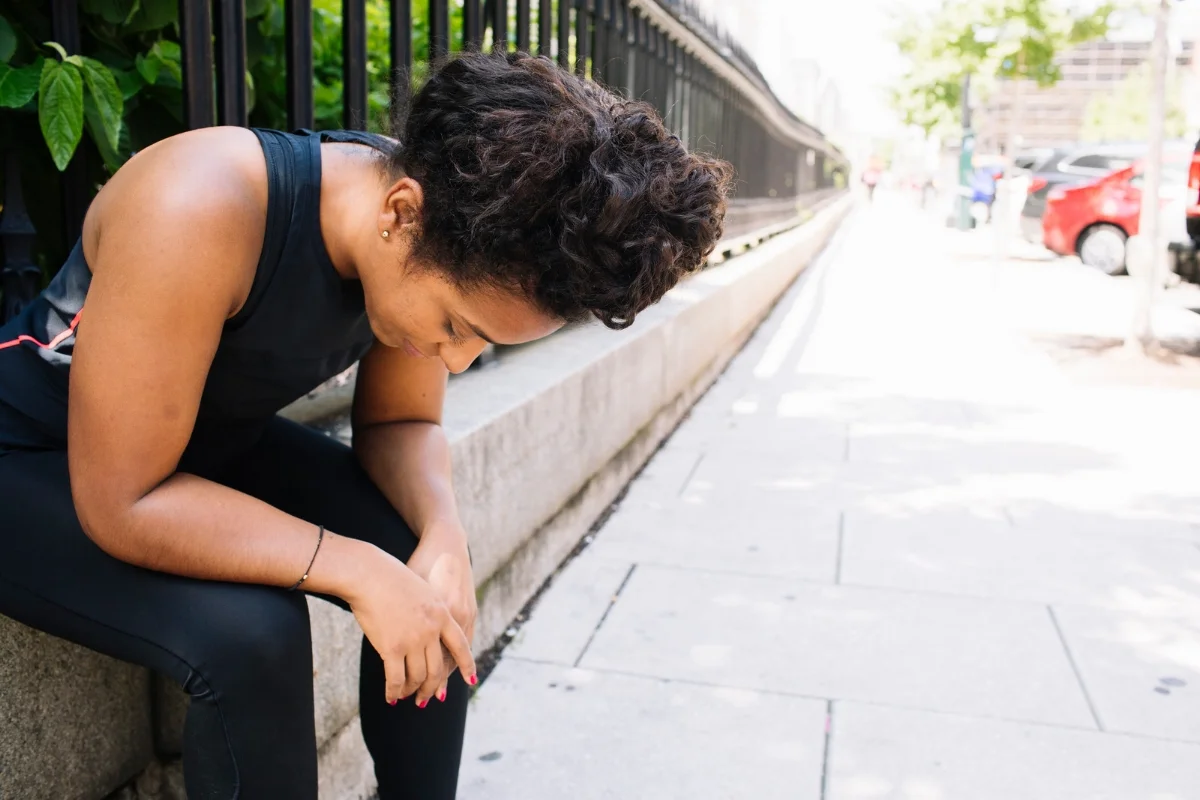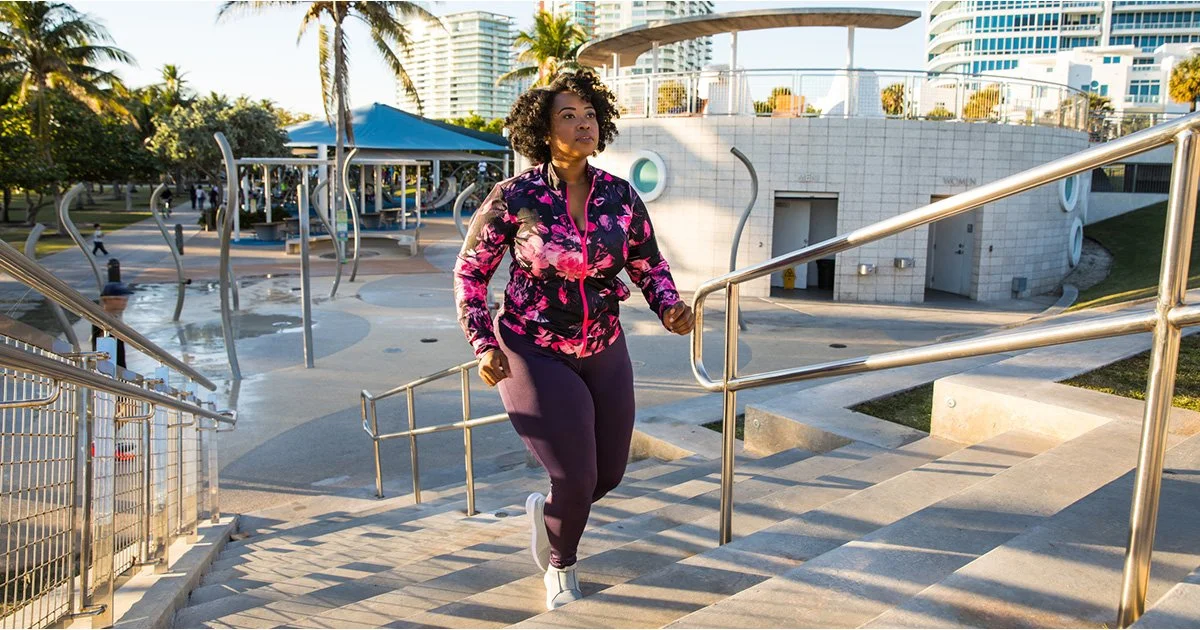Running Through Mental Barriers
Photo: Sunchase Media for RUNGRL
By Tamika L. Gittens
This article is part of RUNGRL’s October Mental Health Series.
I’ve never obsessed much over exercise, weight or body image, but after facing both heartbreak and unemployment back to back in 2011, I needed to cope with the depression and hopelessness I was suddenly battling. I felt like I was losing my mind and my willingness to live. I knew I needed to do something.
Although I’m a woman of faith, prayer alone wasn’t cutting it. I couldn’t afford the gym and had time on my hands, so running became my primary source of exercise (and therapy). Once I started, like Forrest Gump, I kept on running and haven’t stopped since.
Taking My First Steps
When I first ventured out, I’d run just a mile or two. Growing up in Brooklyn, I heard stories of joggers disappearing in Central Park and other places, so I’ve always had a lingering fear of something happening to me. Still, my curiosity remained. The other runners I observed displayed a graceful boldness I admired. So, I set the simple goal to run for half an hour without getting “snatched” like the horror stories I’d heard. Once I began to more often, my nerves eased up and I became more comfortable. I ran the same path, from my apartment to my endpoint and back.
One blustery winter day (I love cold weather), I ran beyond my usual endpoint and, in turn, beyond my comfort zone. This time, I felt a charge of energy when I finished. My heart, body and spirit just felt light. Week by week, my mileage increased, and I went from running two- to 10 miles at a time, exploring different parts of Washington, D.C.
Over time, running proved to be my mental breakthrough. The depression, anxiety and shame of not having a job began to subside. My hair grew and my skin glowed. I became more comfortable in my skin and began to believe in my own abilities so much that I decided to register for my first half marathon just one week prior to race day.
It was the best and worst thing I could have done because the hilly course and heat index had big plans for me. I finished, though, and, since then, I’ve successfully completed 12 half-marathons. I’m also working toward my first marathon.
Unseen Supporters
While I was praying and training to be a better runner for my own healing and restoration, I was surprised to learn that people were following my running journey. I talked to family, friends and new acquaintances who would commend me on what they’d heard about my running endeavors. On countless occasions, I was moved to tears to hear how I inspired others. They never knew the negativity I was secretly fighting. Had those things not happened, I wouldn’t be where I am today.
Despite the love and support I received, I also encountered a few Negative Nancys. You know, the kind that say things like,
“You’re crazy to run so much.”
“Better you than me!”
“You actually pay to run races?”
(And, my favorite) “I could never run that far.”
What these people failed to realize is that running is not just physical. For me, it is always about maintaining a sound mind, a mental escape. It’s taught me to be more in tune with my heart and body; my best ideas come to me during a run. I’m also very reflective of how far I’ve come.
What would have happened if I had quit? Over the last few years, I’ve pushed the limits, mind, body and spirit and so glad I did. Some limits that I placed on myself. I charge anyone facing the harsh realities of life to push beyond the limits of what you think your body can and cannot do. Your body will do what your mind tells it. A sharp mind makes for a good run. And all your runs won’t be good but that’s more reason to try again once you renew your mind.
The truth is, running saved my life.
Today, I’m a proud Black distance runner and I’m so thankful to God, my family and my friends for their unwavering support. As for those two major storms that had me running my heart out, let’s just say everything has fallen into place, all that was lost has been restored and I’m happier than I’ve ever been before.
Follow Tamika’s journey on Instagram @TLilyG
—
According to the Health and Human Services Office of Minority Health, African Americans are 20% more likely to experience serious mental health problems than the general population. However, only about one-quarter of African Americans seek mental health care, compared to 40% of whites. Seeking help is the first step towards the total wellness you deserve.
For questions about mental health issues, contact the National Alliance on Mental Illness (NAMI) Help Line: 1-800-950-NAMI (6264) or info@nami.org. Other important help line numbers are below:
National Suicide Prevention Lifeline – Call 800-273-TALK (8255)
Crisis Text Line – Text NAMI to 741-741
National Sexual Assault Hotline – Call 800-656-HOPE (4673)
National Domestic Violence Hotline – Call 800-799-SAFE (7233)




